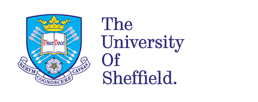
Richard M Nixon, Anthony O'Hagan, Jeremy Oakley, Jason Madan, John W Stevens, Nick Bansback and Alan Brennan
MRC Biostatistics Unit, Cambridge, UK, Centre for Bayesian Statistics in Health Economics, University of Sheffield, UK, Department of Probability and Statistics, University of Sheffield, UK, School of Health and Related Research, Univeristy of Sheffield, UK and Centre for Health Evaluation and Outcome Sciences, Canada
Publication details: Pharmaceutical Statistics 8, 371-389 (2009).
The development of a new drug is a major undertaking and it is important to consider carefully the key decisions in the development process. Decisions are made in the presence of uncertainty and outcomes such as the probability of successful drug registration depend on the clinical development programmme.
The Rheumatoid Arthritis Drug Development Model was developed to support key decisions for drugs in development for the treatment of rheumatoid arthritis. It is configured to simulate Phase 2b and 3 trials based on the efficacy of new drugs at the end of Phase 2a, evidence about the efficacy of existing treatments, and expert opinion regarding key safety criteria.
The model evaluates the performance of different development programmes with respect to the duration of disease of the target population, Phase 2b and 3 sample sizes, the dose(s) of the experimental treatment, the choice of comparator, the duration of the Phase 2b clinical trial, the primary efficacy outcome and decision criteria for successfulling passing Phases 2b and 3. It uses Bayesian clinical trial simulation to calculate the probability of successful drug registration based on the uncertainty about parameters of interest, thereby providing a more realistic assessment of the likely outcomes of individual trials and sequences of trials for the purpose of decision making.
In this case study, the results show that, depending on the trial design, the new treatment has assurances of successful drug registration in the range 0.8 - 14.2% for an ACR20 outcome and 5.1 - 21.7% for an ACR50 outcome.